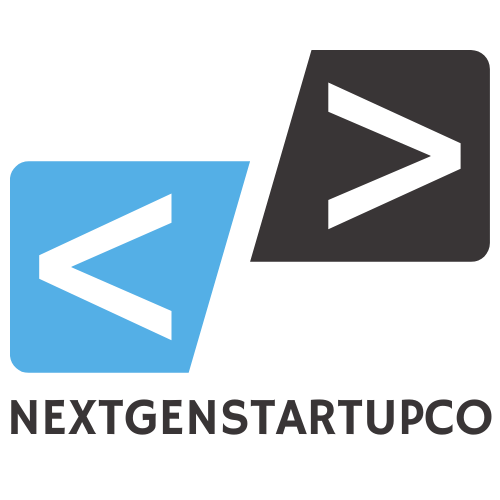In a world where software is king and every business wants to rule the digital kingdom, SaaS developers are the unsung heroes behind the scenes. They’re the wizards who conjure up cloud-based solutions that keep companies running smoothly without the burden of hefty hardware costs. Think of them as the tech-savvy ninjas who turn complex problems into simple, user-friendly applications.
But let’s be real—being a SaaS developer isn’t just about coding and algorithms. It’s a wild ride filled with deadlines, caffeine-fueled brainstorming sessions, and the occasional existential crisis over whether to use a semicolon or not. With the demand for SaaS solutions skyrocketing, these developers are not just in the game; they’re changing the rules. Buckle up as we dive into the world of SaaS development and uncover what makes these tech trailblazers tick.
Table of Contents
ToggleWhat Is a SaaS Developer?
A SaaS developer specializes in creating Software as a Service applications. These professionals leverage cloud computing to build software that users can access online without installation on local devices. They focus on designing, developing, and maintaining applications that allow businesses to function effectively.
Cloud-Based services define their role. Developers create solutions to streamline business operations, harnessing cloud technology for enhanced scalability and flexibility. This shift eliminates the need for expensive hardware and simplifies software maintenance for clients.
Collaboration plays a vital part in their work. SaaS developers often work closely with product managers, designers, and quality assurance teams to ensure a seamless user experience. They prioritize user needs when designing interfaces and functionalities.
Rapid iteration is common in SaaS development. Agile methodologies enable developers to release updates and new features frequently. Continuous feedback from users drives enhancements that improve application performance.
Security is a critical concern for SaaS developers. Protecting sensitive data from breaches requires implementing robust security measures, such as encryption and secure user authentication. Developers must stay updated on best practices to mitigate potential risks.
Innovation shapes the future of SaaS. As technology evolves, developers adapt by integrating emerging trends, such as artificial intelligence and machine learning, into their applications. This continuous improvement cultivates competitive advantages for businesses relying on SaaS solutions.
Key Skills of a SaaS Developer

SaaS developers possess a unique mix of technical and soft skills. These abilities enable them to create effective cloud-based solutions that meet the needs of businesses.
Technical Skills
Proficiency in programming languages like JavaScript, Python, and Ruby is essential. Familiarity with cloud platforms such as AWS, Azure, and Google Cloud enhances deployment efficiency. Developers often utilize frameworks like React and Angular for front-end development. Understanding of databases, both SQL and NoSQL, supports data management and retrieval. Security knowledge protects against vulnerabilities, making it crucial in software development. They often deploy version control systems like Git for collaborative coding and tracking changes. Finally, embracing agile methodologies allows SaaS developers to respond swiftly to user feedback.
Soft Skills
Communication plays a significant role in collaboration with teams across various disciplines. Problem-solving skills empower developers to tackle challenges swiftly and creatively. Adaptability ensures they can pivot in a fast-paced environment while embracing new technologies. Time management helps prioritize tasks, ensuring deadlines are met without compromising quality. Empathy allows them to understand user needs, contributing to enhanced user experiences. Lastly, teamwork fosters a collaborative spirit, enabling developers to work effectively towards shared goals.
Roles and Responsibilities of a SaaS Developer
SaaS developers engage in a variety of roles that contribute to the creation of cloud-based solutions. Designing user-friendly interfaces stands out as a core responsibility. They implement features that enhance user experience by collaborating closely with product managers and designers.
Development of scalable applications must align with business needs. Developers use agile methodologies to facilitate continuous integration and deployment, allowing for rapid iterations based on user feedback. Maintaining software performance and security also plays a significant role in their daily tasks; developers must regularly assess and update their applications to counter potential threats and vulnerabilities.
Documentation of code and systems is crucial for successful team collaboration. Developers create detailed documents that streamline onboarding for new team members while ensuring transparency in the development process. In addition, testing and debugging applications become routine activities, as these processes identify and address issues before launch.
Collaboration with quality assurance teams ensures that software meets high standards. Feedback loops with these teams enable developers to make necessary adjustments, keeping quality at the forefront. The integration of emerging technologies, including artificial intelligence and machine learning, also falls under their responsibilities, pushing innovation forward while enhancing application functionality.
Engaging actively in meetings enhances communication within teams. Developers participate in discussions that align project goals and expectations while promoting a shared understanding of requirements. This proactive approach fosters a productive work environment and strengthens project outcomes.
Tools and Technologies for SaaS Development
SaaS developers utilize a variety of tools and technologies essential for creating effective software solutions. Programming languages play a fundamental role, with JavaScript, Python, and Ruby commonly used for application development. Each language serves unique functions, making it easier to tailor applications to specific business requirements.
Cloud platforms represent another crucial element. AWS, Azure, and Google Cloud provide the infrastructure needed for deployment, ensuring scalability and reliability. These platforms support the rapid iteration capabilities that define modern SaaS development.
Database management systems are vital for storing and retrieving data efficiently. MySQL, PostgreSQL, and MongoDB are some popular choices, each offering distinct advantages based on project requirements. A well-structured database enhances application performance and user satisfaction.
Security tools also deserve attention. Developers implement frameworks and services like OWASP, which provide guidance for securing applications against vulnerabilities. Regular updates and security audits ensure compliance with best practices, protecting sensitive data throughout the application’s lifecycle.
Version control systems facilitate seamless collaboration among developers. Git stands out as a leading choice, allowing teams to track changes, manage code versions, and streamline the development process. Effective use of these systems fosters better teamwork and reduces deployment errors.
Testing frameworks and tools are essential for maintaining high-quality standards. Options like Jest and Selenium offer automated testing solutions, helping to identify issues early in the development cycle. By incorporating continuous integration pipelines, SaaS developers ensure that updates are thoroughly vetted before release.
Emerging technologies also play a significant role, driving innovation within SaaS development. AI and machine learning tools create opportunities for enhanced functionality, allowing developers to integrate intelligent features into applications. Embracing these technologies positions businesses to compete effectively in a rapidly evolving digital landscape.
Career Path and Opportunities
SaaS developers encounter diverse career paths within the tech industry. Entry-level positions often require foundational skills in programming and cloud technologies. Junior developers gain hands-on experience by collaborating with senior team members on real projects.
Mid-level roles demand proficiency in multiple programming languages and a deeper understanding of cloud infrastructure. Developers take on responsibilities such as mentoring juniors and leading small teams. By this stage, mastering agile methodologies and user feedback integration becomes critical.
Senior SaaS developers coordinate large projects and optimize application performance. They oversee product launches and ensure adherence to best practices for security. Furthermore, they often liaise with stakeholders to align product goals with business objectives.
Career advancement can lead to specialized roles, such as cloud architect or DevOps engineer. These positions focus on optimizing resource allocation and implementing deployment strategies that enhance efficiency. Developers in these roles typically command higher salaries and have increased job responsibilities.
Emerging opportunities in SaaS development include roles related to AI and machine learning integration. Professionals can focus on creating intelligent features that redefine user experiences. This aspect of SaaS development fosters innovation and keeps companies competitive.
The demand for SaaS developers shows no signs of slowing, as businesses increasingly rely on cloud solutions. Networking through industry events and participating in online communities enhances visibility and opens doors to potential job opportunities. Continuous learning through certifications and courses also strengthens marketability in this fast-evolving field.
SaaS developers play a pivotal role in shaping the future of technology. Their expertise not only enhances business operations but also drives innovation across industries. By leveraging cloud computing and adopting agile methodologies, they create scalable solutions that meet the evolving needs of users.
As the demand for SaaS applications continues to rise, these professionals are well-positioned to lead advancements in software development. Their unique blend of technical and soft skills ensures they can navigate challenges and collaborate effectively within teams. The future looks bright for SaaS developers, with ample opportunities for growth and specialization in this dynamic field.



